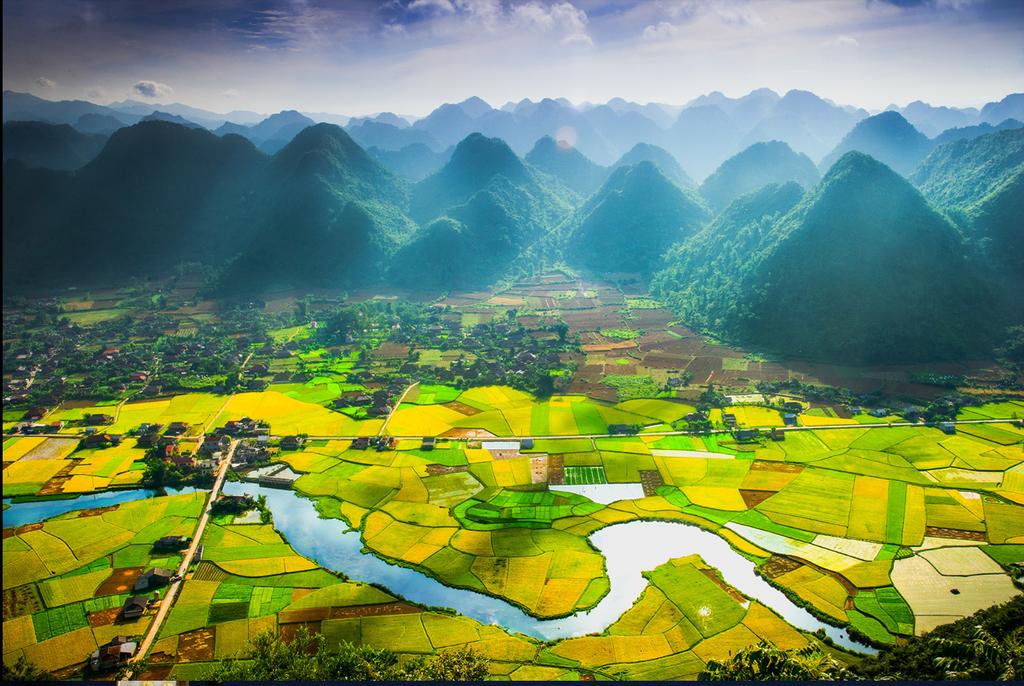Central Vietnam is home to some of the most scenic and historically significant motorbike routes in the country. From the famous Hai Van Pass to the ancient charm of Hoi An, and the historical Ho Chi Minh Trail, the region offers a diverse range of experiences. Knowing the best time to visit each destination can greatly enhance your motorbike tour experience, ensuring you ride in the best weather conditions.
1. Overview of Central Vietnam’s Climate
Central Vietnam is characterized by a tropical monsoon climate, with a dry season and a wet season. The best time to visit the region is during the dry season when the weather is warm, and the roads are clear for riding.
| Season | Months | Average Temperature | Characteristics |
|---|---|---|---|
| Dry Season | January – April | 22°C – 30°C (72°F – 86°F) | Warm, sunny, and perfect for motorbike tours along the coast and through historical sites. |
| Wet Season | May – October | 28°C – 36°C (82°F – 97°F) | Hot, humid, with frequent rain, especially in the mountains. |
| Cool Season | November – December | 20°C – 28°C (68°F – 82°F) | Cooler temperatures with occasional rain, ideal for riders looking to avoid the heat. |
2. Best Time for a Motorcycle Tour to Visit Central Vietnam
The dry season from January to April is the ideal time to explore Central Vietnam on a motorbike. The weather is warm and dry, offering excellent riding conditions along the coast and through historic landmarks. November to December is also a favorable time, especially if you prefer cooler temperatures and fewer tourists.
- January to April: The warm and dry weather is perfect for exploring coastal routes like the Hai Van Pass and historical sites such as Phong Nha-Ke Bang National Park.
- November to December: Cooler weather provides a comfortable riding experience, with fewer tourists around the major attractions.
2. Must-Visit Destinations in Central Vietnam
Hai Van Pass: Best Time – March to May (Spring)
The Hai Van Pass is one of the most iconic motorbike routes in Vietnam, known for its winding roads and panoramic ocean views. The best time to ride the Hai Van Pass is from March to May, when the weather is warm but not too hot, and the skies are clear, offering the best visibility for the stunning coastal scenery.
- Highlights:
- Hai Van Pass: A 21 km stretch of winding roads that offer breathtaking views of the coastline and mountains.
- Lang Co Beach: A serene beach along the route, perfect for a refreshing break.
- Da Nang and Hue: The pass connects these two culturally rich cities, offering opportunities to explore Da Nang’s beaches and Hue’s ancient citadel.
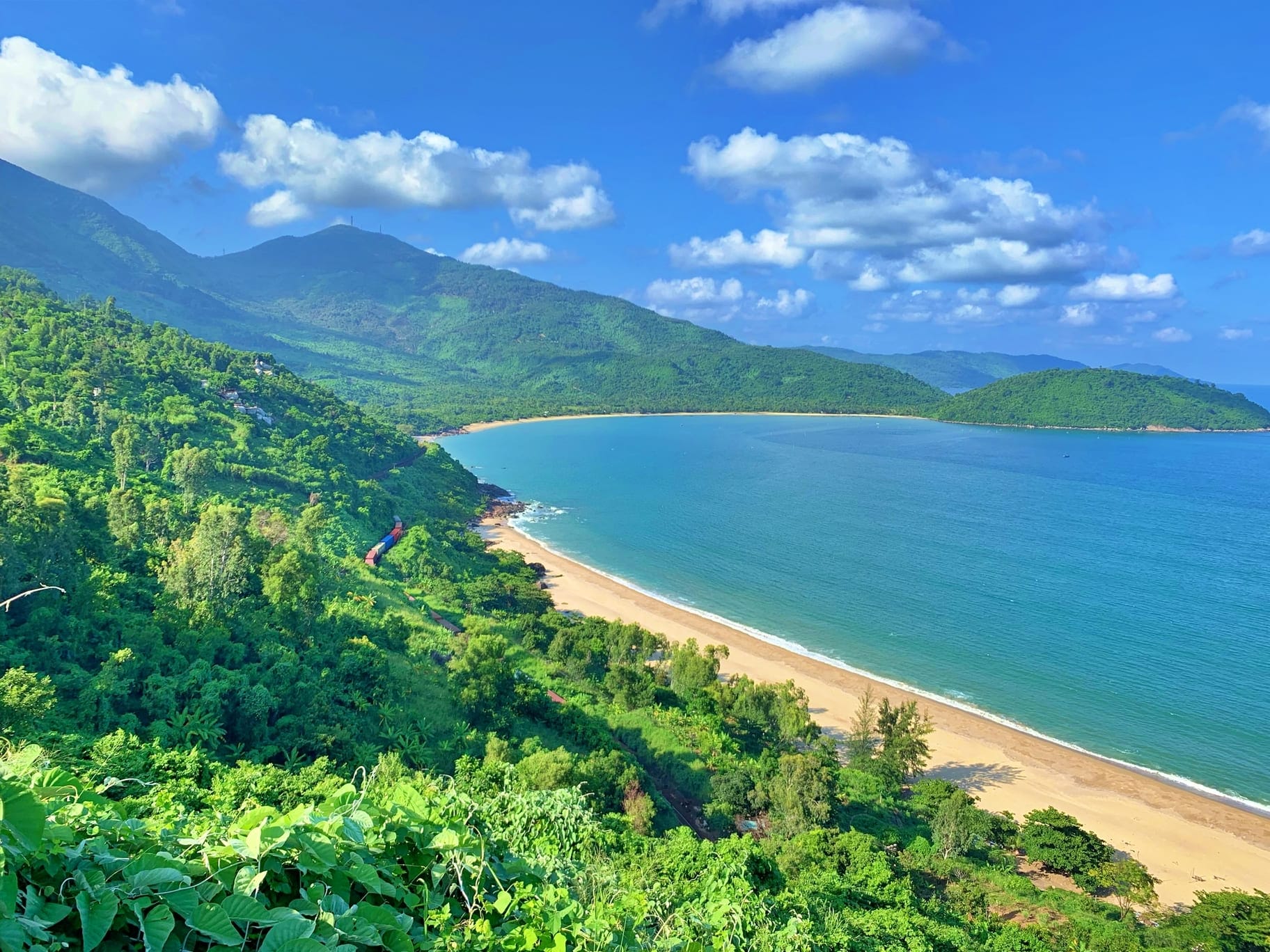
Vietnam Dirt Bike Adventure Motorbike Tour from Da Nang to Saigon
Ho Chi Minh Trail: Best Time – January to April (Dry Season)
The Ho Chi Minh Trail is one of the most historically significant routes in Vietnam, used during the Vietnam War to transport supplies. Today, it offers an adventurous ride through remote, forested areas and mountainous terrain. The dry season from January to April is the best time to explore this trail, as the roads are dry, and the weather is warm.
- Highlights:
- Phong Nha-Ke Bang National Park: Home to the world’s largest cave, Son Doong, as well as Phong Nha and Paradise Caves.
- Khe Sanh Combat Base: A major site from the Vietnam War, now a historical attraction.
- Vinh Moc Tunnels: An underground tunnel system used during the war, now open for exploration.
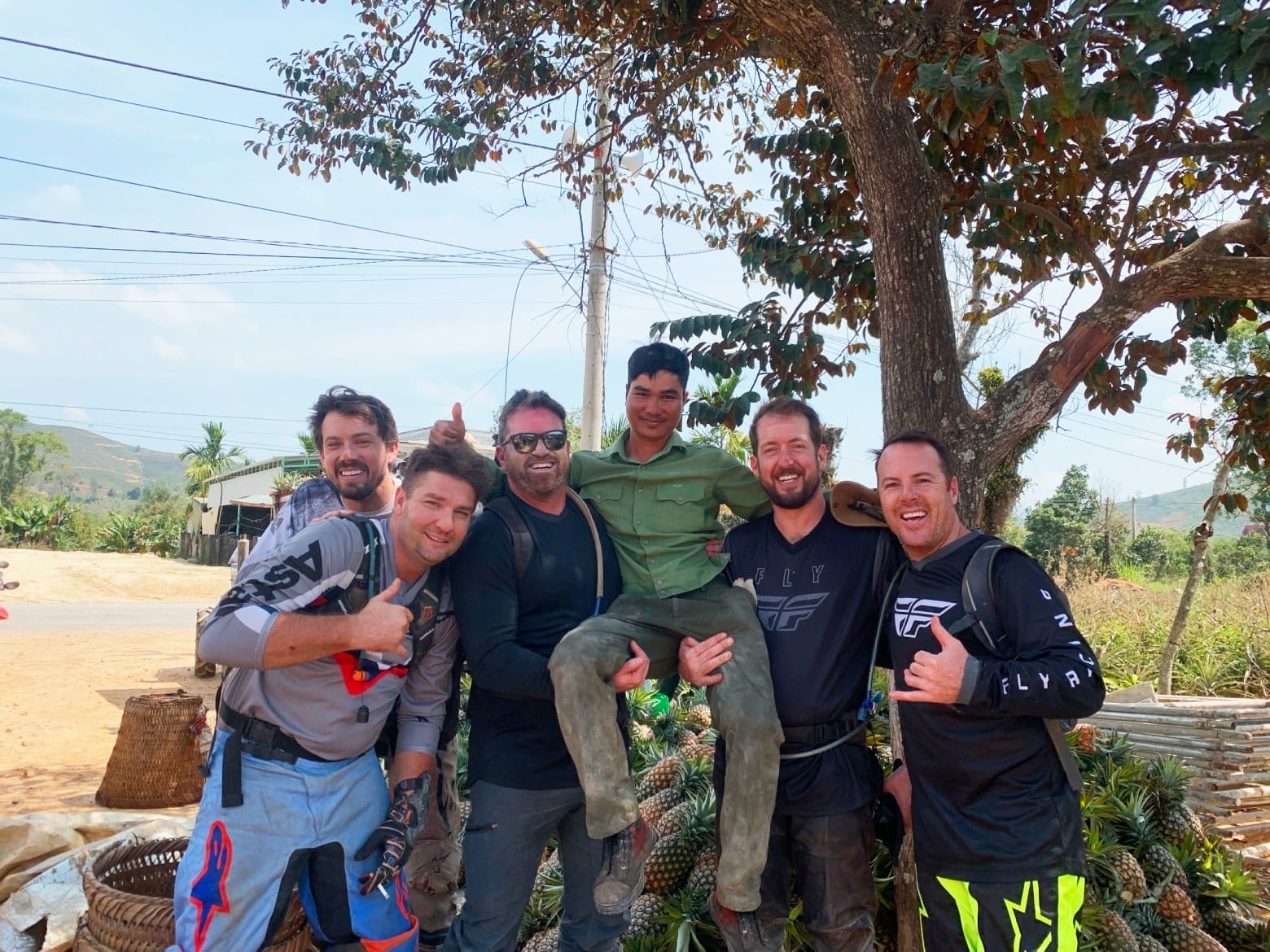
Hoi An to Quy Nhon Coastal Route: Best Time – February to April (Late Winter/Early Spring)
The coastal route from Hoi An to Quy Nhon is ideal for those who prefer a scenic ride along the sea. The best time to ride this route is from February to April, when the weather is cool and dry, making it perfect for exploring the ancient town of Hoi An and the less crowded beaches of Quy Nhon.
- Highlights:
- Hoi An: A UNESCO World Heritage site known for its ancient architecture, colorful lanterns, and riverside charm.
- My Son Sanctuary: A cluster of ancient Hindu temples from the Champa Kingdom, set in a lush valley.
- Quy Nhon: A quiet coastal town with unspoiled beaches, ideal for a peaceful retreat after the ride.
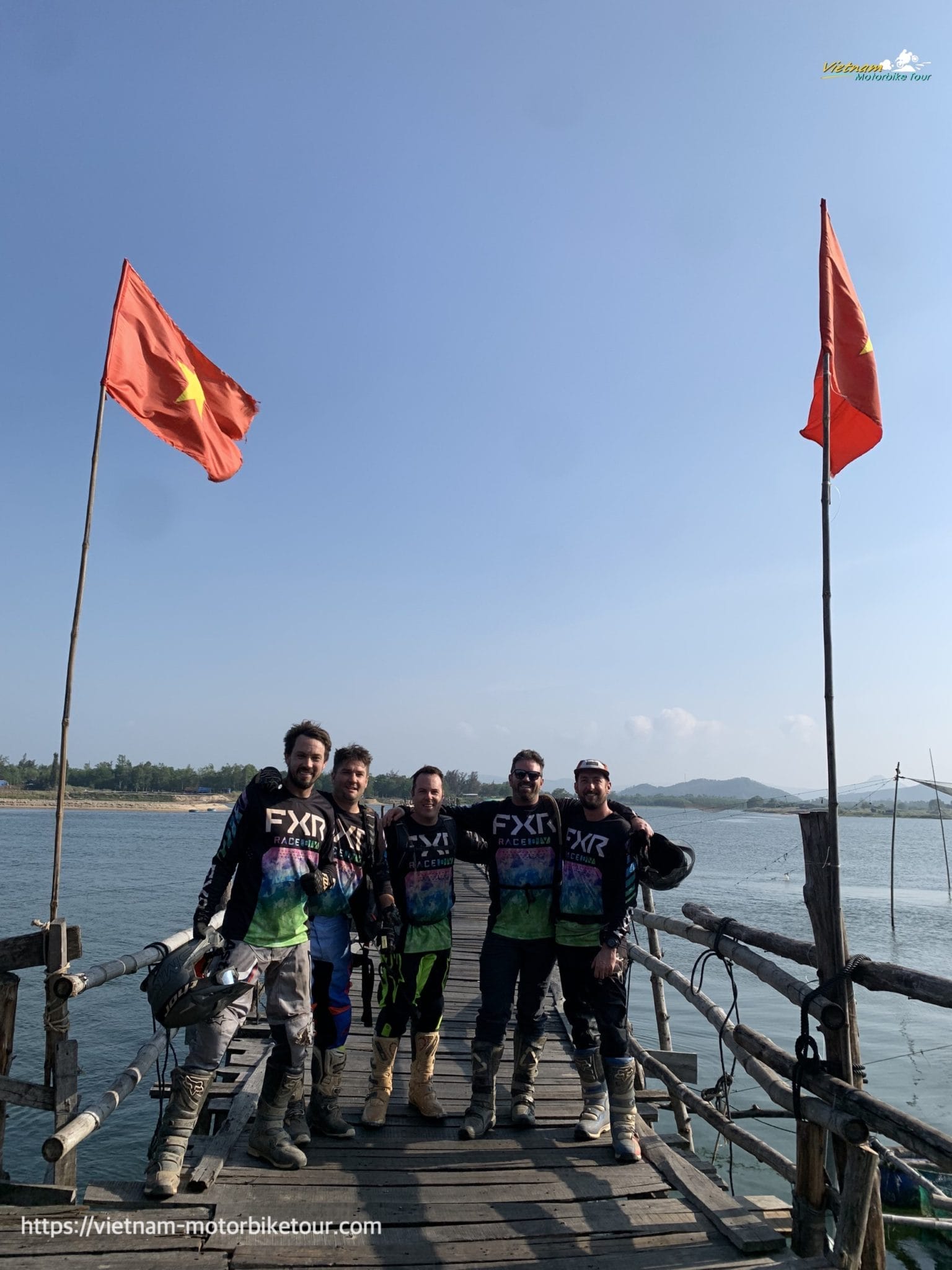
Phong Nha-Ke Bang National Park: Best Time – February to April (Dry Season)
One of Vietnam’s most stunning natural destinations, Phong Nha-Ke Bang National Park is best explored during the dry season, from February to April. This time offers ideal weather for motorbike tours through the park’s lush forests and limestone karsts, as well as for exploring its famous caves.
- Highlights:
- Son Doong Cave: The largest cave in the world, although access is limited to specialized tours.
- Phong Nha Cave: A magnificent cave with an underground river, accessible by boat.
- Paradise Cave: Known for its impressive stalactites and stalagmites, this cave is a must-visit.
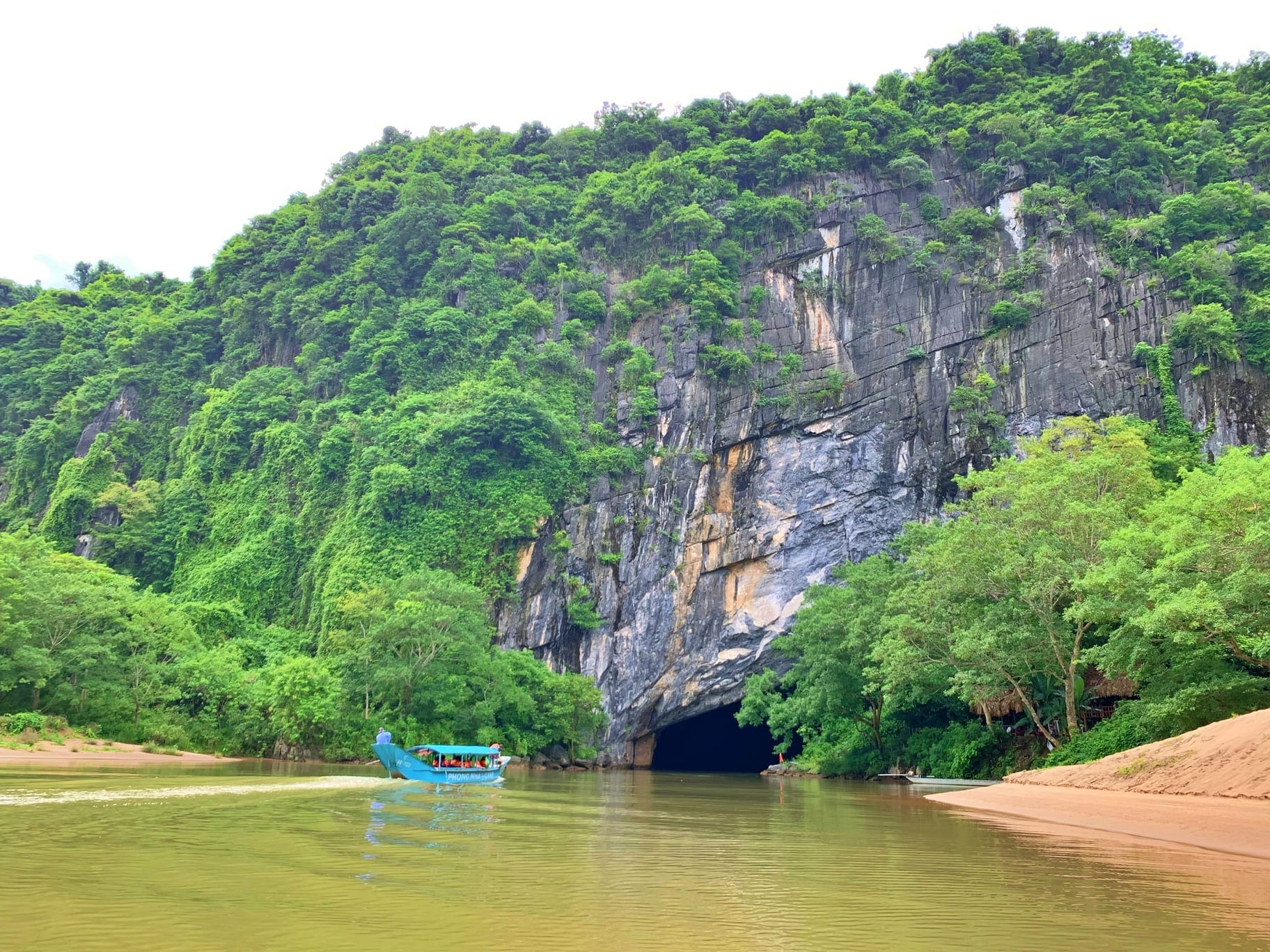
INSPIRING HANOI MOTORBIKE TOUR TO HOI AN AND NHA TRANG – 10 DAYS
4. Activities in Central Vietnam
- Cave Exploration in Phong Nha-Ke Bang: Take a break from riding to explore the majestic caves of Phong Nha, which are some of the most impressive in the world.
- Beach Stops Along the Coastal Route: Ride along the coastal roads and enjoy relaxing stops at hidden gems like Lang Co Beach and the quiet beaches of Quy Nhon.
- Historical Exploration in Hue: Discover the rich history of Hue by visiting the Imperial City and the Tombs of the Nguyen Emperors.
4. FAQs for Central Vietnam Motorbike Tours
-
When is the best time to ride the Hai Van Pass?
The best time to ride the Hai Van Pass is from March to May, when the weather is clear, and the views are spectacular. -
Can I ride the Ho Chi Minh Trail during the rainy season?
It’s not recommended, as the roads can become muddy and dangerous. The dry season from January to April offers much safer riding conditions. - How long should I plan for a motorbike tour in Central Vietnam?
A tour of Central Vietnam can range from 5 days to 2 weeks, depending on how many stops you make. The Ho Chi Minh Trail typically takes 5-7 days, while shorter routes like the Hai Van Pass can be done in a single day.
